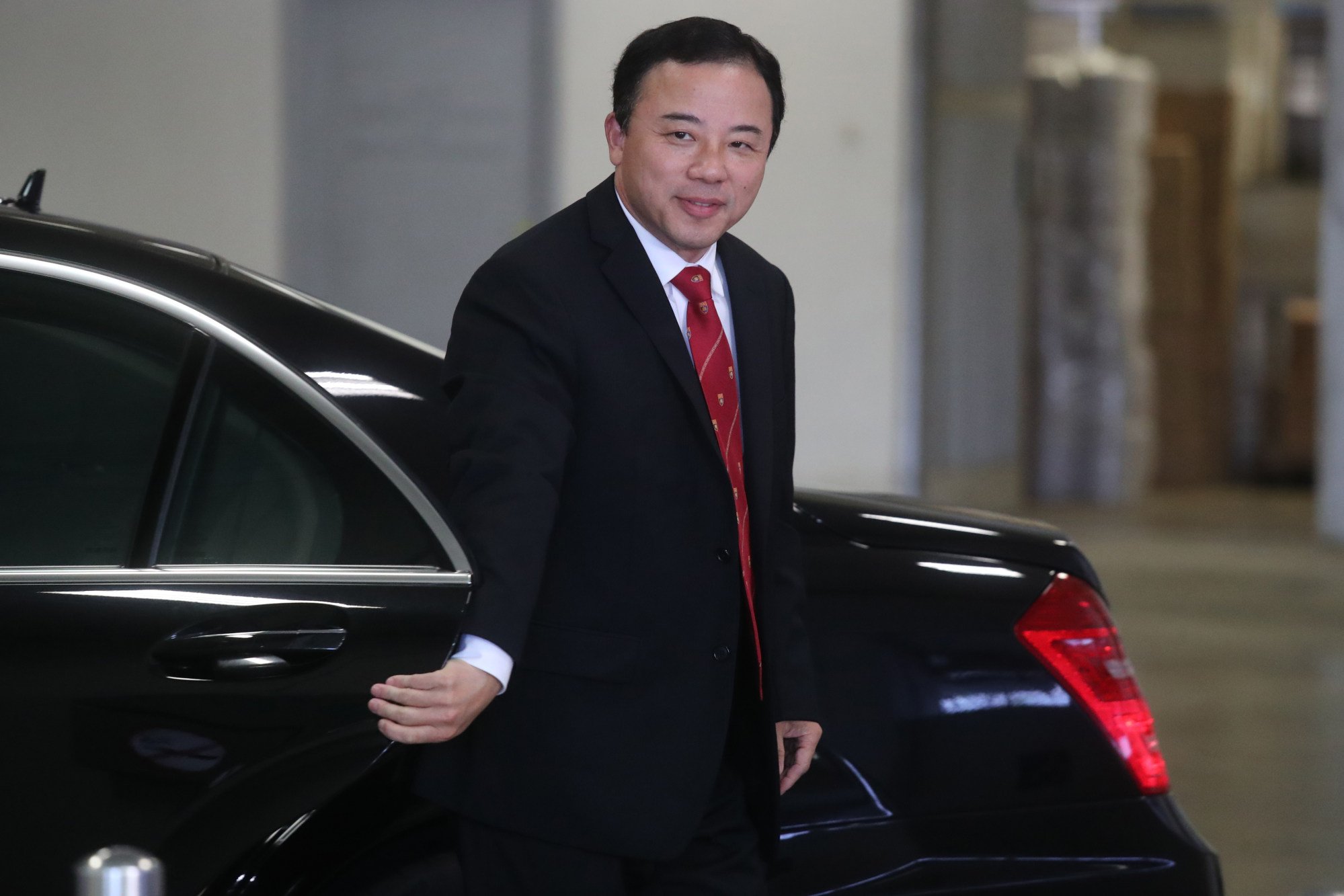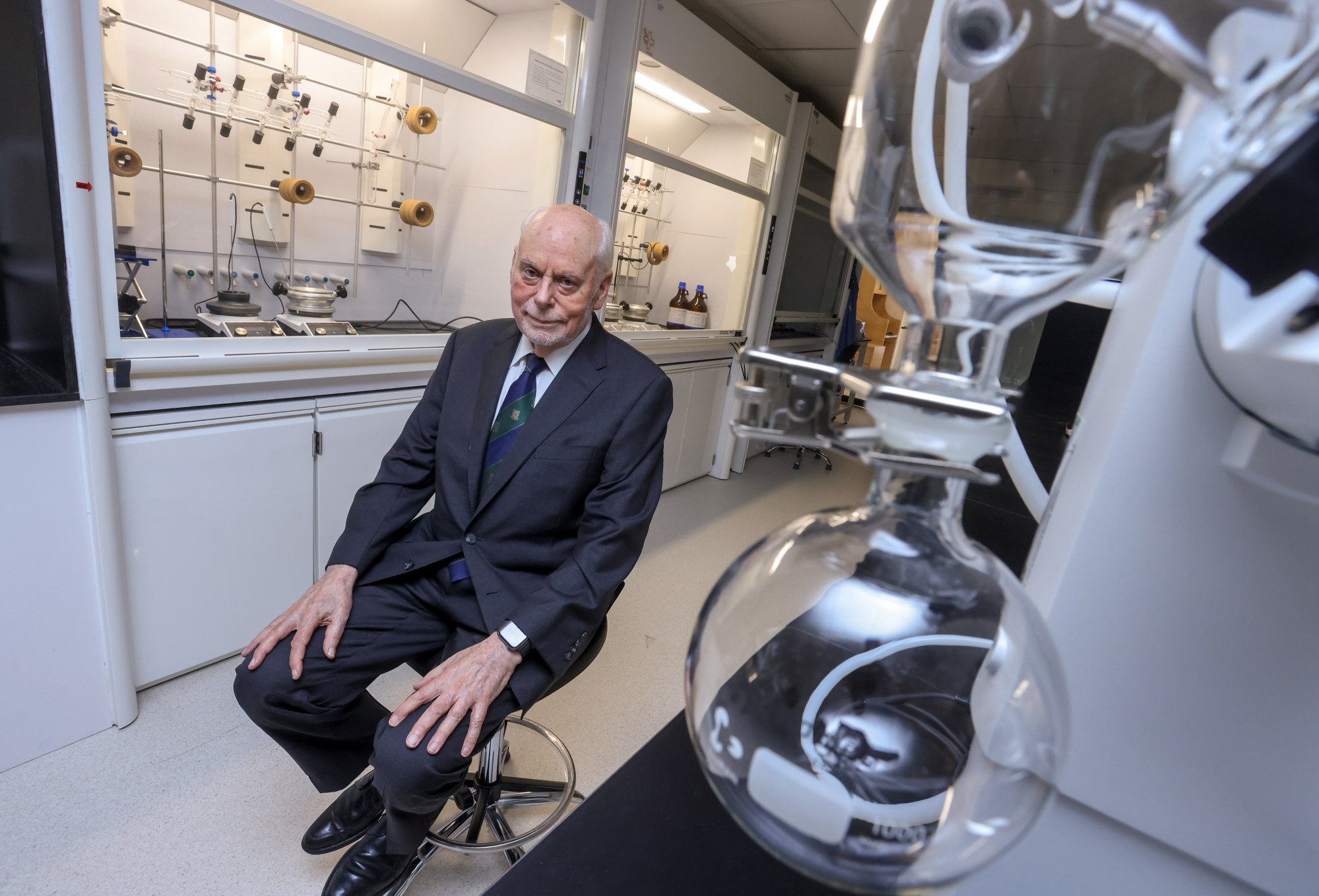
‘Petty politics will destroy University of Hong Kong’: Nobel winner backs varsity chief ahead of council meeting on misconduct claims
- Professor Fraser Stoddart calls on council to ignore accusations against Xiang Zhang, saying inquiry is a ‘complete waste of time’
- ‘This is a little storm in a teacup in a very localised situation. The rest of the world doesn’t give a damn,’ he says
A Nobel laureate in chemistry recruited by the president of Hong Kong’s top university has openly supported the institution’s beleaguered chief, ahead of a key meeting of its governing council to discuss accusations of mismanagement made anonymously against him.
Professor Fraser Stoddart, who received his Nobel Prize in 2016 and joined the University of Hong Kong (HKU) last month as chair professor of chemistry, said he would release an open letter of support for Xiang Zhang on Monday.
He urged the council to ignore the accusations against the HKU president, saying an inquiry would be “a complete waste of time”.
“It would not be in the interest of Hong Kong University,” he said. “And I don’t think it would be in the interests of Hong Kong … petty politics destroy your university.”

The scholar added that the international community would not care about the saga.
“This is a little storm in a teacup in a very localised situation. The rest of the world doesn’t give a damn … they’re not going to be distracted by a particular governing body that happens to be picking a fight with the president,” he said.
In anonymous emails, Zhang was accused of handling donations from a mainland Chinese corporation inappropriately and recruiting a headhunter from the United States to fill key positions.
The president denies the claims, saying “rumour-mongers” are twisting the truth, while his backers say his hiring practices merely reflect his determination to recruit the best for HKU.
Stressing that HKU needed “diversity” to excel, Stoddart said Zhang had been highly proactive in reaching out and recruiting overseas scholars.
Stoddart said he was approached by Zhang in late January and received the offer in March. He was provided with a newly refurbished research laboratory in three months, whereas other universities could take a year to complete, he added.

“[Y]ou get very small windows to attract the top people into your organisation … if you follow the rules and have a global search, the chances are that the people or person you want to try and hire will go elsewhere. Speed is of the essence,” he said.
“[I]f they take long then you’ve lost your opportunity. And this is where I think president Zhang is an absolute wizard. He makes things happen at the speed of light.”
Asked whether Zhang’s way of expediting processes would compromise established protocols, the scholar said: “[My] experience is if you follow due process, and if you follow the rules of the day, then you achieve nothing.”
The chair professor said Zhang, whom he first met two decades ago, was committed to introducing changes to bring the institution to the top levels of international academia, but faced opposition. He said it was similar to his own experience in the United Kingdom where he received anonymous attacks and little support, while the “bureaucratic system” dragged his feet.
“I can relate to in a very general way, I think his wish to bring about change. And I think he’s running into exactly the same kind of opposition that I run into,” he said.
The governing council rescheduled their special meeting from last Tuesday to Monday to determine the way forward in line with its whistle-blowing procedures on the alleged misconduct of Zhang.
A source told the Post that Zhang questioned whether the council was a “fair forum” to discuss the issue.
The insider also said Professor Ma Yi, who was persuaded by Zhang to join HKU in January as chair professor in the department of computer science, last week wrote a letter to the council to voice his support for his recruiter.
Ten members of the court, the overseeing and legislative body of HKU, signed a joint declaration letter to call for setting up an independent investigation commission and holding a public hearing to look into the matter as they saw the saga damaged the university’s reputation.

